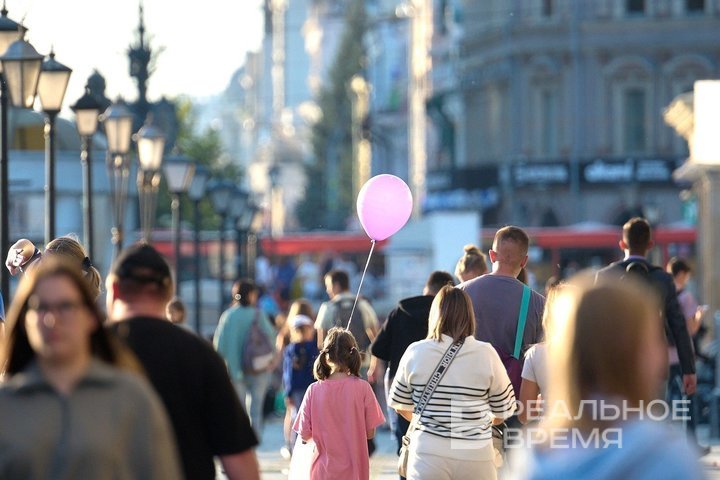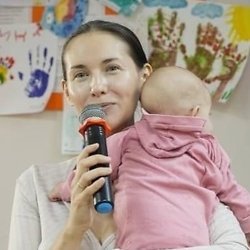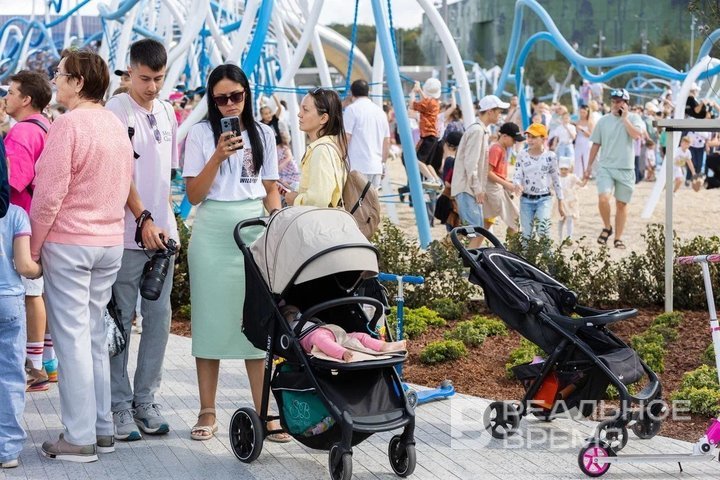Elina Belyankina: ‘It turns out that this is indirect coercion to have children’
How Tatarstan responded to a proposal to introduce a childlessness tax for young Russians

In early October, Russia resumed the discussion of sanctions for childless Russians. Member of the State Duma’s Defence Committee Andrey Gurulev proposed introducing a tax for citizens without children arguing that it is necessary to stimulate an increase in the birth rate. But this initiative borrowed from Soviet practice raises questions about its effectiveness, fairness and possible consequences for society. Read about what arguments “for” and “against” exist, who will benefit from it and how will it affect the situation in the country in a report of Realnoe Vremya.
“Egg tax”: part two
The Kremlin reported that it does not yet have detailed information about the proposal to introduce a childlessness tax in Russia, said the president’s spokesperson Dmitry Peskov. He noted that this issue requires an analysis of the Soviet experience when it was widespread.
In November 1941, the USSR introduced the Tax on Bachelors, Singles and Small Families popularly known as the “egg tax.” Childless men aged 20 to 50 and childless married women aged 20 to 45 were required to pay the state 6% of their salaries. A reduced rate was in effect for those earning less than 91 rubles a month, and earnings of less than 70 rubles were not taxed at all.
Peskov also expressed doubt about the effectiveness of this tool for improving the situation in the country: “It is unlikely that this tax had any impact on the demographic situation. Although this should be done by specialists.”

The idea of introducing a tax on childlessness is not new. In 2020, a similar proposal was put forward by Chairperson of the board of Council of Mothers Russian public organisation Tatyana Butskaya. She proposed to collect it from those who “consciously refuse the decision to have a child,” both men and women.
“To improve the demographic situation in Russia, each family should have at least two children, and three or more are possible. And there is nothing complicated about it”
In 2024, the issue of childlessness was raised again by State Duma deputy Andrey Gurulev who proposed to direct funds from this tax to support orphans and orphanages. He emphasised: “What is left of a man in this life? Firstly, his name, secondly, his children.”

It should be reminded that later, State Duma Chairman Vyacheslav Volodin called on his colleagues to be careful when putting forward initiatives, especially those that could cause a public outcry. In particular, he warned against ill-considered decisions, including the introduction of this tax.

According to the Russian Orthodox Church, the proposals to introduce the tax are a provocation. It is aimed at preventing the adoption of a law banning childfree propaganda. According to Chairman of the Patriarchal Commission of the Russian Orthodox Church on Family Issues, Protection of Motherhood and Childhood and Priest Fyodor Lukyanov, the activity of some public figures works to weaken Russia's sovereignty. This confirms the correctness of the efforts of Russian society to protect itself from destructive ideologies and subcultures.

Reference